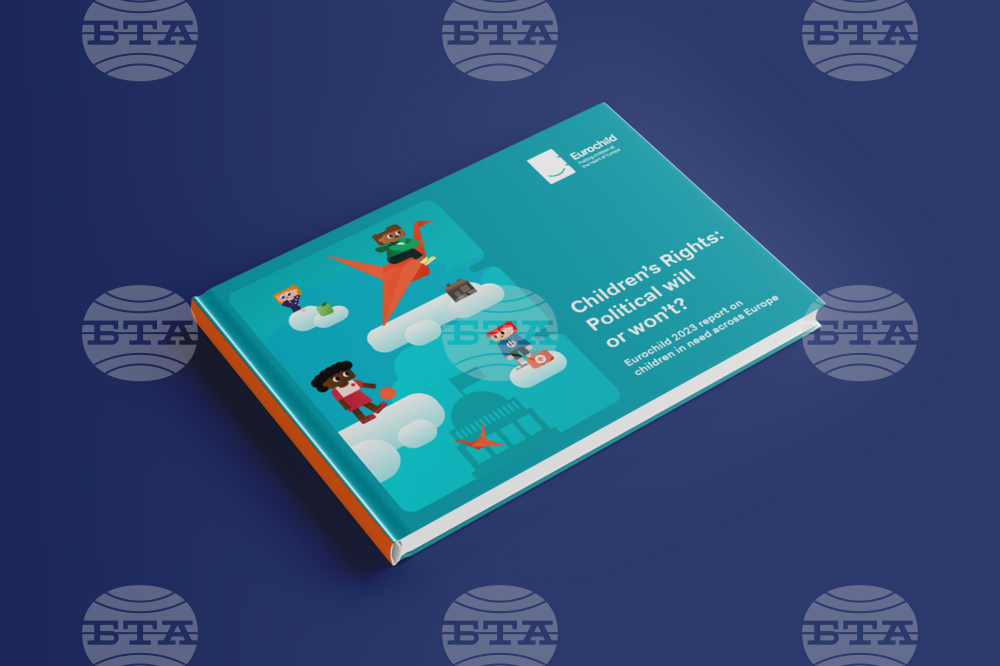site.btaBulgaria Second in Europe for Share of Children at Risk of Poverty - Eurochild 2023 Report


The pan-European network Eurochild has published its 2023 report "Children's Rights: Political Will or Won't?" that analyses data on children in need across Europe. According to the report, Bulgaria is second in Europe after Romania for its share of children at risk of poverty or social exclusion, 33.9%.
The report is based on data provided by 38 Eurochild members in 26 countries and includes recommendations to each country to tackle child poverty and social exclusion, discrimination, health care, online safety and early childhood services.
According to the report, key topics for Bulgaria are children's rights in the following areas: online safety; the children affected by the war; children’s participation in the decisions that affect them and in the public debate on the topics important to them. According to the pan-European network, Bulgaria lacks an understanding of children’s rights, and the position of a child, compared to that of an adult, is belittled, which is a major obstacle to their wider civic participation.
In Bulgaria, movements against children’s rights and human rights in general are clearly observed. That is particularly applicable to children who assert their views against the so-called “traditional societal norms” and children from minority groups (refugee and migrant children, ethnic minorities, children from the LGBTI community). Their vulnerability is largely due to widespread discriminatory attitudes, high levels of misinformation, fake news and everyday hate speech, the report reads.
The Safer Internet Centre’s hotline receives a record number of reports , 90% of which are about online sexual exploitation, including harassment and sexual extortion. The quality of the National Children’s Hotline (the second tool in Bulgaria for supporting children who are victims of violence together with the State Agency for Child Protection) has deteriorated in recent years due to the lack of the necessary expertise among the employees who manage it.
The child protection system in Bulgaria remains reactive, with about 2,000 children entering it annually. Child protection departments are still severely understaffed and have high turnover. There are also gaps in action to promote a change in attitudes that stigmatise poverty and marginalisation. Children’s rights are undermined and violated in the new type of housing, which is supposed to provide a new type of care compared to the institutionalised model of child rearing. There is a lack of efforts to build and strengthen intersectoral cooperation and coordination between all public institutions, making up all elements of the child protection system.
Bulgaria has the largest share of unaccompanied minors among the EU member states. Since the beginning of the war in Ukraine, nearly 150,000 Ukrainian refugees have passed through Bulgaria, about 40% of them are children. Less than 10% of them (about 2,200 children) are enrolled in the Bulgarian education system.
There are a total of 1.18 million children in Bulgaria, 33.9% of whom live at risk of poverty and social exclusion by 2022. This equates to approximately 403,004 Bulgarian children in need. The percentage of children at risk of poverty and social exclusion has increased since 2021. There is a serious disparity between the overall rate of child poverty and that of children of different ethnic origins – 37.5% of children from Turkiye and 69.4% of Roma origin in poverty are increasing respectively. Nearly 20% of children in Bulgaria live in households with three or more children.
The report notes as positive steps the abolition of kindergarten and crèche fees, the increase of the maternity leave for parents who have children in their second year, and the increased tax relief for working parents. However, it is insufficient to provide integrated support for the poorest and most marginalised families with children. A number of pilot initiatives targeting different aspects of poverty are introduced, but they are not sustainable over time and beyond their pilot phase do not become a stable national policy with clear evaluation criteria and persistence in achieving clearly set results, Eurochild argues.
/DS/
news.modal.header
news.modal.text